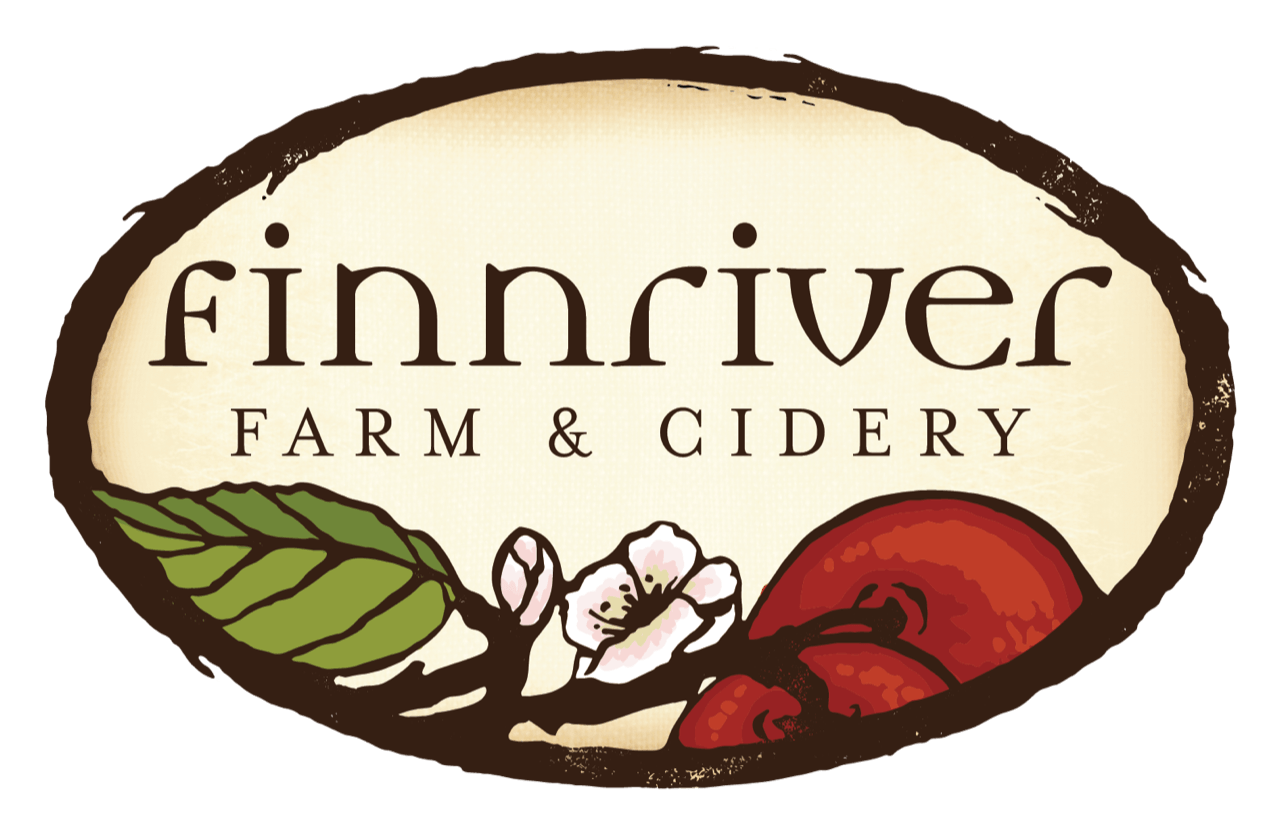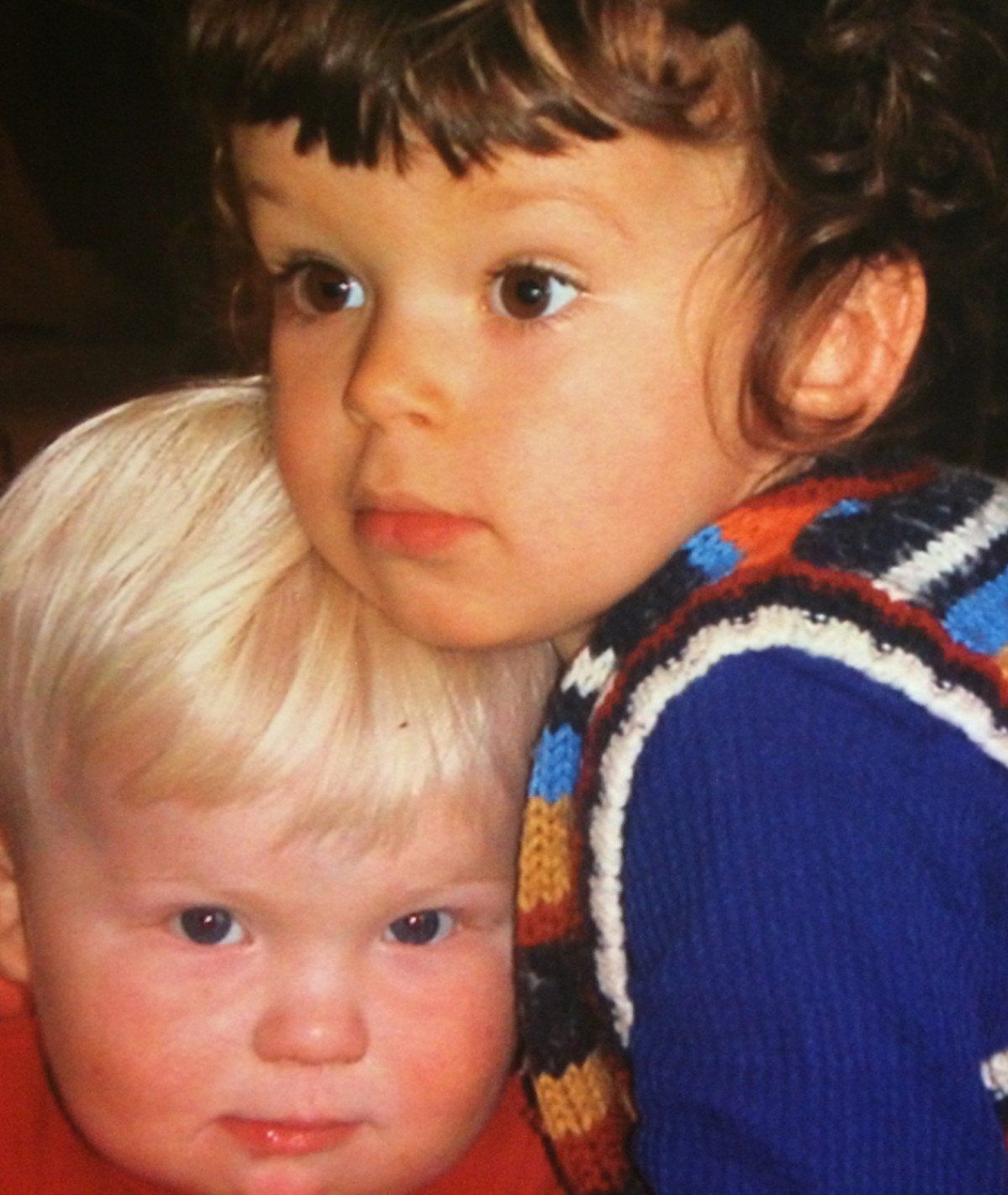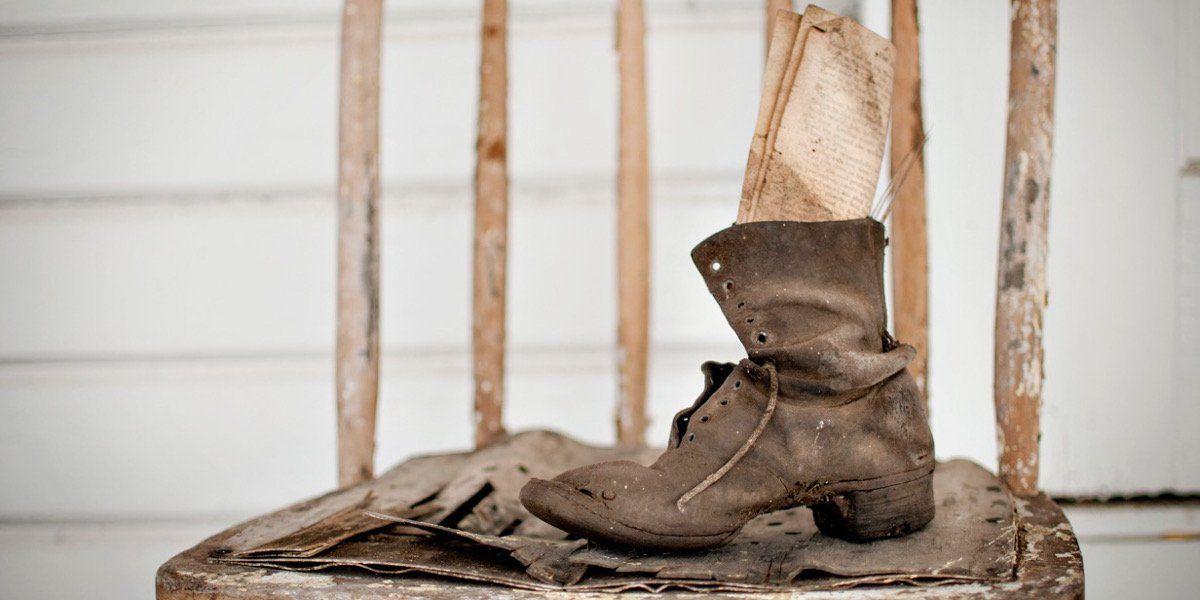This is a story of confluence-- how fertile land, impassioned farmers, creative fermenters, good neighbors, ripe timing, community support and organic apples all converged to sustain a small family farm and bring Finnriver Farm & Cidery to life. While our farm is remote, we are honored to have been on the forefront of the Pacific Northwest cider revival. We are committed to fermenting a vision of good land, renewed and inclusive rural community and a vibrant food culture.
Finnriver Cidery was co-founded in 2008 by partners Keith and Crystie Kisler and Eric Jorgensen. Andrew Byers came on as Head Cidermaker in 2013 and joined the ownership in 2018. These four people each have a unique story that carried them to Chimacum, journeys that converged in the collaborative project of the founding and growing Finnriver.
The Kislers met as wilderness educators in Yosemite National Park and set out from there with the intention to find a place to set down roots and grow a grounded life together. When their search for land and livelihood brought them to the Olympic Peninsula, they moved to the seaport and arts town of Port Townsend, qatáy, on S'Klallam, Chemakum lands. The name Kai Tai is from the Chemakum name qətáaluqo, which was adapted into the S’Klallam word qatáy (kah-tai). *
There the Kislers befriended some folks and two of them, skilled farmers Kate Dean and Will O'Donnell, became their farm business partners in 2004. Together, the two families purchased a 33-acre organic blueberry farm in Chimacum's Center Valley from Elijah (Lige) and Kay Christian, who have since been mentors and neighbors. It was Lige and Kay who began the stream restoration work on the land, dug the ag wells, put up the barn and planted all 2,000 blueberry plants.
The partners re-named the farm Finnriver, after Kate and Will’s son Finn and the Kislers' first son River, a name that honored their family farming aspirations and the fish in the watershed. The name was also inspired by this old Irish legend:
As a young lad, Finn MacCool went to live with a wise old poet who had spent seven years trying to catch the sacred Salmon of Wisdom, which lived in a pool on the river. It was foretold that whoever ate this salmon would gain all the knowledge in the world. Eventually the master caught the great fish, and told the boy to cook it for him, but to take care not to eat it. While cooking the fish young Finn burned his thumb and instinctively put the finger in his mouth. Finn thus gained the salmon’s wisdom and used it to lead his people and bring peace to the land.
There the two families focused on growing organic fruit, vegetables and grains, and searching for a small farm model that would support their families, serve the community and sustain the land. Then one day Lige brought over a bottle of hard cider he’d fermented from the apples out back. It was a delightful, dry, effervescent discovery. And, for the farming families, it sparked an interest in seeing what cider could be.
When the Dean-O'Donnells moved on to pursue other ventures, the Kislers encountered the financial challenge of keeping the farm intact as well as the practical one of needing more hands in the ground to get it all done. Working together with Jefferson Land Trust and the Jefferson Landworks Collaborative, they took local low-interest loans from generous community investors and farm allies, agreed to place protective conservation easements on the farm, and developed a plan to embark on cider production.
Enter Eric Jorgensen! Eric's life journey took him from the Midwest to the Northwest with adventures as raft guide, environmental educator and then school teacher in the nearby rural community of Quilcene. Along the way he married writer and teacher Abby Jorgensen and with their two daughters, they settled down to homestead on a beautiful ridge above Chimacum's valley. Through conversational plotting in the Jorgensen's homebuilt sauna, Keith and Eric decided to partner on a cider project in 2008-- to revive the craft of artisan hard ciders and to operate the newly-formed Finnriver Cidery. The early days of the cidery involved Keith and Eric up many a late night, either poring over spreadsheets or leaning over fermentation tanks. While Crystie was working on label designs and sales and marketing plans.
Since those early days, Finnriver’s founders have grown into unique roles along with the farm, orchard, and cidery:
Eric became the 'mathemagician', business manager, chief financial officer and staff banjo player. Keith guided the operations side of things and served as contractor for our many building projects; and Crystie has been the community connector and mission-keeper-- welcoming people to the farm through outreach and seasonal events. The three referred to themselves as Head, Hands and Heart and it was through their balanced partnership and the efforts of an outstanding crew over the years Finnriver has grown into a purposeful and passionate cider company.
Having outgrown our original barn, and searching for good ground to plant a cider orchard, Finnriver began leasing the 50-acre former historic Chimacum Dairy in 2012, located just three miles up the road from our original location. The farm had been protected by conservation easements with Jefferson Land Trust, creating the opportunity for us to work with visionary local investors to renovate and re-purpose this historic dairy into the Finnriver Orchard and to find land partners to help showcase how organic agriculture, rural economy and ecological restoration could all thrive together.
The first day of transplanting trees at the new location in 2013 was also Andrew Byers first day of work at Finnriver. Andrew was moving from the East coast to the West to be closer to family and had most recently been working as an orchardist and cidermaker at Eve's Cidery in upstate New York. With his background in botany, and his poetic passion for cider, we welcomed him with open arms and tree branches to Finnriver! Within a year, Andrew was working as Head Cidermaker and has now moved into the role of General Manager.
Change is natural and necessary and we keep growing with it. Keith has refocused his farm efforts on continuing his family lineage of grain growing with The Chimacum Valley Grainery, a farming, milling, malting and brewing operation based at the original home farm location. Also at the home farm, Janet Aubin and Jeff Horwath continue farming organic blueberries, other organic fruits and veggies and free-range eggs with Stellar J Farm. At the Cidery, Chris Weir, one of our first Finnriver employees and an early member of the cidermaking crew, is back now as Production Manager of the cider barn. Eric continues as business manager and Crystie as mission-keeper, storyteller and community relationships.
The roots of the cidery began in friendship, farmland and a mission to celebrate the beauty and bounty of the earth, to reconnect people to the land that sustains us and to grow community. Along the way, many crew members, investors, community partners and visitors have contributed to the shape and flow of Finnriver. Now-- with several thousand cider trees in the ground, multiple land partners, and over 50 members of the Cidery crew-- organic farming, craft fermenting and community building continue side by side here.




